The first self-service store was, by popular consent, opened by the Co-op in Portsmouth in 1947. The chain was then at the forefront of retailing and had 100 factories producing most of its products.
Then, store managers were responsible for their own prices and marketing.
In the 1950s, stores were still battling with rationing, with manufacturers allocating rather than marketing products, and wrapping them themselves.(It wasn't until the latter part of the decade that manufacturers started doing the job.)
Burt Cross, who was with the CWS from the late 1930s and the general manager for marketing services at that time, remembers that customers didn't want to wait to pay. "Some people also thought they got better treatment the old way when store owners kept things under the counter for them."
Cross thinks the Co-op lost ground to the other multiples when it stuck with small formats. "We had 25% of the grocery trade in the late '40s and showed people what self-service was. But everyone followed us and started doing it better."
Tesco may have caught up with the Co-op eventually, but Lord MacLaurin, who was at the helm in the 1970s, admits his chain was very much at the bottom end of the market in the early days.
He recalls when store openings were a big event, like a carnival, but as stores grew bigger and the operation more sophisticated, these died out.
"Tesco has evolved by listening to customers and anticipating their needs. In the early days they asked for fresh meat and coffee shops and we responded to them. We created a new environment with excitement that changed people's shopping habits. We can look back and be very proud of what we achieved."
He credits much of Tesco's success to a "magnificent management team", all of whom were "thirsting for success". "When you're coming from the bottom end of the market you always got a carrot. When we came out of stamps in 1977, we wanted to be the best."
Lord MacLaurin started with Tesco as a trainee manager in 1959 at the store in Neasden and remembers it had no refrigerators. "When it was hot, we stored yogurts in the lavatory and if a customer asked for butter I had to get it from the toilet."
He believes relationships with suppliers were less cosy in those days. "There was a stand-off between manufacturers and retailers, and retailers ruled the roost. Suppliers didn't have any sort of dialogue that was nuts."
This view isn't shared by Gordon Baxter, the life president of Baxters, and one of the oldest surviving members of the trade. He admires the retail scene and the progress made over recent years, but says he sometimes yearns for bygone days.
"Then, you shook hands on a deal. It was terribly civilised. Business was conducted between gentlemen and observed on all sides. People were nicer to each other. If I made a deal with someone like Jack Cohen it worked perfectly. Nowadays, everyone has lawyers it's a harder world now, but it's still exciting and I love every minute of the business."
He also rues the changes in pricing. "You named your price and that was it they weren't squeezed then. Manufacturers weren't pressurised as much to be more efficient, and price cutting wasn't developed to the same extent."
Back on the other side of the fence, Safeway chairman David Webster admits to being staggered at the pace of change and evolution, and knows from experience that circumstances can change rapidly which can be stimulating. His acquisition of the UK arm of the US chain was a critical event in the evolution of the industry: "The period of explosive store openings was particularly exciting we opened 30 stores one year."
But he says this excitement is tempered by the unfounded criticism from the media and politicians. "We now get an excessive amount of flak that wasn't always the case."
And he is less sure of the industry's future. "It's hard to predict. You've got a very dominant Tesco, but Wal-Mart should not be underestimated. It's all about economies of scale now the bigger you are, the better you buy and the more competitive you become. But it's not just retailers getting bigger, many of the global manufacturers we buy from now are bigger than us."
{{COVER FEATURE }}
Close menu
- Home
- Retail & Wholesale
-
Products & Suppliers
- Back to parent navigation item
- Products & Suppliers
-
Product Categories:
- Back to parent navigation item
- Product Categories:
- Alcoholic drinks
- Bakery
- Cereals & breakfast
- Cheese
- Chicken & poultry
- Chocolate
- Confectionery
- Crisps, nuts & snacks
- Dairy
- Fish
- Fresh produce
- Frozen
- Household
- Meat
- Own Label
- Sauces & condiments
- Seasonal
- Soft drinks
- Vaping
- Vegan & plant-based
- World foods
- Suppliers
- People
- Reports & Data
-
Topics A-Z
- Back to parent navigation item
- Topics A-Z
-
Popular topics:
- Back to parent navigation item
- Popular topics:
- Cost of living crisis
- Crime
- Deposit Return Schemes
- Finance
- Government & Regulation
- Health
- Inflation
- Loyalty
- Marketing
- Mergers & Acquisitions
- New Product Development
- Sourcing
- Supply chain
- Sustainability & environment
- Technology
- Ultra Processed Foods
- Vaping
- A-Z all topics
- Content by type:
- Events
- Ask iA (beta)
- Subscribe now
Sign in to comment on this article
Not logged in before? Register for FREE guest access today.
You will be able to:
- Read more stories
- Receive daily newsletters
- Comment on stories
Advert










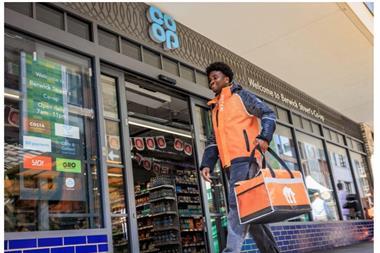
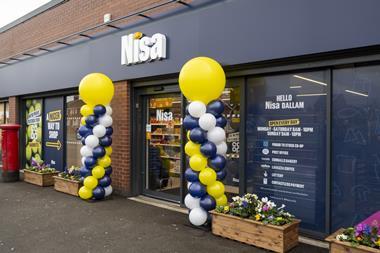
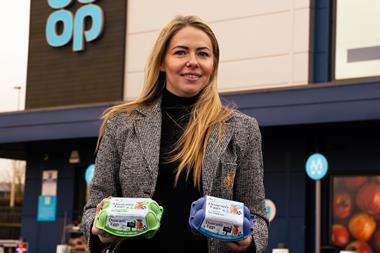
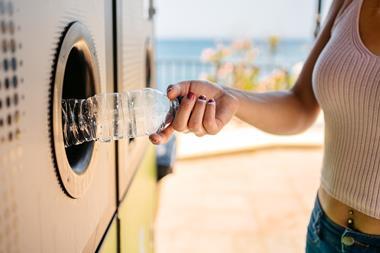

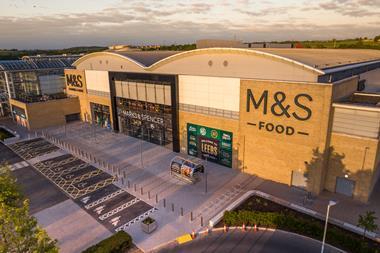
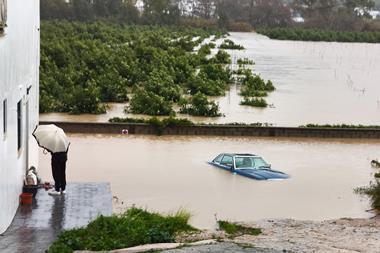


No comments yet